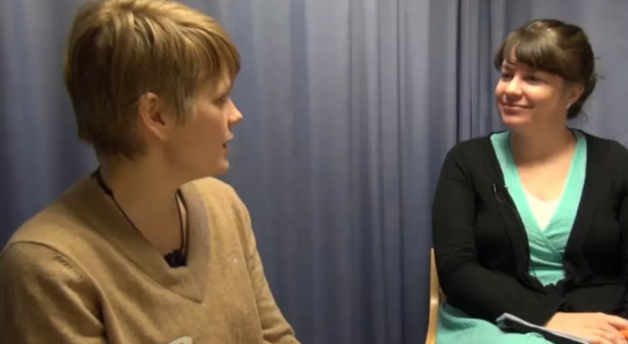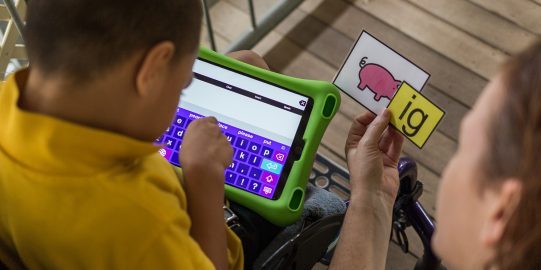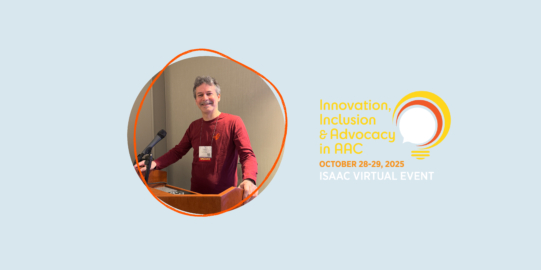Angelman syndrome is a genetic syndrome that occurs in about 1 in 15,000 children. Among the symptoms are developmental delay, lack of speech, seizures, and difficulties with walking and balance. Until recently, it was believed that people with Angelman syndrome had severe cognitive deficits and that very few of them would be able to learn to communicate fully, or read and write. Then came the revolution.
Questioning a gloomy prognosis
Parents, teachers, and therapists began to question the gloomy communication prognosis, which was based on research using standardized testing. In such testing, children are asked to perform tasks by unfamiliar adults in unfamiliar and unnatural contexts - “point to the apple,” “give me the banana and the pencil,” “touch your elbow,” etc. Angelman children had difficulty with these tasks, but their parents, teachers, and therapists knew that in more natural situations, they showed they could understand the same words they had “failed” to recognize in the tests.
Advocating for more natural teaching methods
Parents and professionals began to advocate for more natural assessment and teaching methods - ones that took place in fun daily activities, without demands for performing drill-like repetition out of context. Research was beginning to show that people with Angelman syndrome have significant motor planning challenges such as apraxia, as well as anxiety. Combined, these conditions make it very difficult to perform actions on demand. Skills that parents saw their children exhibit in everyday life (that weren’t “provable” in a testing situation) were now backed up by scientific research.
Taking up the cause
Revolutionary parents and professionals began to take up the cause. In Australia, Mary-Louise Bertram, an early childhood teacher and AAC specialist, was assigned a classroom with four students with Angelman syndrome. Using aided language stimulation to teach use of AAC, and making sure students had access to their AAC systems throughout the day, she saw her students develop the ability to express themselves and to move beyond simple choice making. Mary-Louise began to spread the word about these techniques to parents in Angelman syndrome organizations outside of Australia, traveling to the US, Canada, the UK, France, and Norway to speak and work with parents and school teams.





